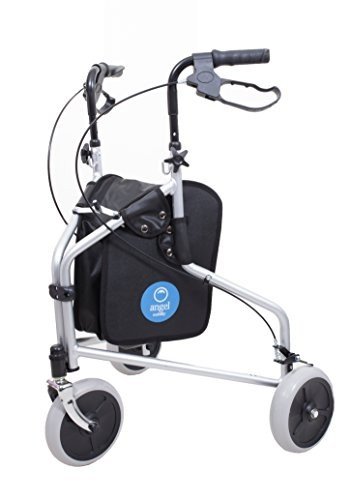Why No One Cares About Buying Mobility Scooter
A Comprehensive Guide to Buying a Mobility Scooter
Mobility scooters have actually ended up being an essential tool for lots of people aiming to improve their self-reliance and mobility. With a huge array of designs and functions available, selecting the right mobility scooter can be intimidating. This post provides a helpful guide to assist customers browse their choices, assess their needs, and make an informed purchase.
Understanding Mobility Scooters
Mobility scooters are electric cars designed for people who experience mobility obstacles. They are particularly useful for seniors, those with disabilities, or people recovering from injuries. Mobility scooters can differ extensively in terms of design, functions, and pricing.
Types of Mobility Scooters
Before embarking on a purchase, it's necessary to comprehend the different kinds of mobility scooters readily available:
Three-Wheel Scooters:
- Generally more maneuverable in tight areas
- Lightweight and portable
- Suitable for indoor usage
Four-Wheel Scooters:
- Offer higher stability and balance
- Appropriate for outside usage over different terrains
- Usually have a longer battery life
Foldable/Portable Scooters:
- Designed to be quickly transported and stored
- Can frequently suit the trunk of a car
- Ideal for those who travel regularly
Durable Scooters:
- Built to accommodate larger individuals
- Frequently included more robust functions for outside use
- Normally equipped with bigger batteries for extended range
Elements to Consider When Buying a Mobility Scooter
1. Weight Capacity
Choose a mobility scooter that can support the user's weight. The majority of scooters have a weight limitation ranging from 250 to 500 pounds. best mobility scooters online is important to make sure that the scooter can accommodate the user conveniently.
2. Variety and Battery Life
The variety is how far the mobility scooter can take a trip on a single charge. Common varieties vary in between 10 to 30 miles. Think about the user's day-to-day activities and select a scooter with an ideal range.
3. Scooter Dimensions
Think about the size of the scooter, including its weight and dimensions. A more compact scooter may be ideal for narrow hallways and tight spaces, while bigger models provide additional stability and convenience.
4. Terrain Capability
Assess where the scooter will mostly be utilized. If the user prepares to take a trip mainly on pavement, a lightweight model may be sufficient. Nevertheless, if the user requires to traverse gravel or uneven surfaces, think about a four-wheel scooter built for off-road use.
Leading Features to Look For
Convenience
- Adjustable Seats: Look for scooters with cushioned and height-adjustable seats to make sure convenience during travel.
- Armrests: These boost safety and support while browsing.
Safety and Visibility
- Headlights and Taillights: Essential for nighttime usage.
- Turn Signals and Reflectors: Improve visibility and security while on the road.
User-Friendly Controls
- Joystick or Drive Controls: These must be instinctive and easy to manipulate.
- Easy-to-Read Displays: A control panel that reveals battery life, speed, and distance can boost the user experience.
Additional Features
- Storage Compartments: These provide included convenience for bring personal products while on the go.
- Weather Protection: Consider models with rain covers or windshields if utilized in variable climate condition.
Cost Considerations
When budgeting for a mobility scooter, rates can vary anywhere from ₤ 500 to over ₤ 5,000 depending on the model, functions, and brand name. Extra expenses might include:
- Extended Warranty: Protects against defects and can conserve money in the long run.
- Devices: Optional functions, such as updated seats, lights, or storage options.
Feature
Expense Range
Standard Models
₤ 500 – ₤ 1,500
Mid-Range Models
₤ 1,500 – ₤ 3,000
High-End Models
₤ 3,000 – ₤ 5,000
Financing Options
Numerous retailers provide financing strategies, and some city government initiatives might offer grants or support for those in requirement. Examine prospective monetary assistance with community resources or mobility service organizations.
FAQs about Buying a Mobility Scooter
What is the distinction between a mobility scooter and a wheelchair?
Mobility scooters are motorized and enable users to navigate individually, while wheelchairs might require physical support or manual operation.
How do I maintain a mobility scooter?
Regular maintenance includes checking battery life, cleaning up the scooter, and inspecting tires and brakes. Always refer to the user handbook for specific standards.
Can mobility scooters be used inside your home?
Yes, numerous designs are designed for both indoor and outside use. Nevertheless, three-wheel scooters tend to be better suited for indoor navigation due to their tighter turning radius.
Are mobility scooters covered by insurance coverage?
Some insurance coverage plans cover a part of the expenses for mobility scooters if they are deemed clinically needed. Contact your supplier for specific details.
How quickly can a mobility scooter go?
Many mobility scooters have a maximum speed ranging from 4 to 8 miles per hour. Nevertheless, the suitable speed may differ depending on local guidelines.
Acquiring a mobility scooter can significantly enhance one's self-reliance and lifestyle. By comprehending the types, features, and costs connected with mobility scooters, potential purchasers can make knowledgeable choices that match their requirements and choices. Personalization and comprehensive research study are essential to guaranteeing complete satisfaction with this essential investment.
